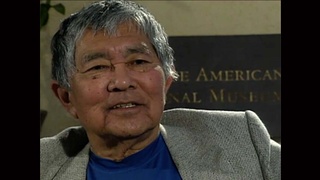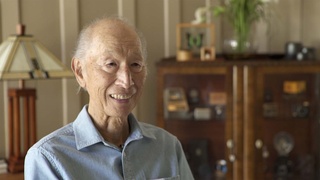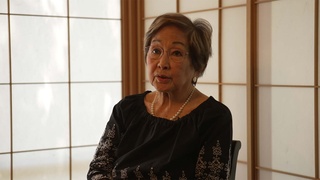Interviews
Brother leaves for war, survival
And at that time, when he came to pick up my brother, my mother never showed tears. She smiled, and she said, “You’re an American now, no matter what. Don’t bring shame on the Oyama family.” And because you grew up without a father, don’t do anything to disgrace the family. “You fight for America, because that’s where you belong.”
And then, after my brother left, I went back to the house, and then I was surprised because […] when I went back to the house, my mother had locked herself in the bedroom and she was just crying her heart out. That’s the part where I admire my mother because she really never showed her weakness because she wanted to be strong for us, growing up without a father. And I think that’s what kept us going.
We were such a close-knit family, you know. And I think that’s the only time I really heard her really cry. And I think once, as a widowed mother, single mother, it must have been tough for her, you know. And once she tried to leave us, and I think she just wanted to get over it. So, a kind neighbor next door, you know, the adults came over to stop her. But, after I got married, I realized how difficult it was during that immigrant period. You know, you’re away from your family in Japan and without relatives to learn to survive on your own.
Date: February 19, 2004
Location: Hawai'i, US
Interviewer: Lisa Itagaki, Krissy Kim
Contributed by: Watase Media Arts Center, Japanese American National Museum.









